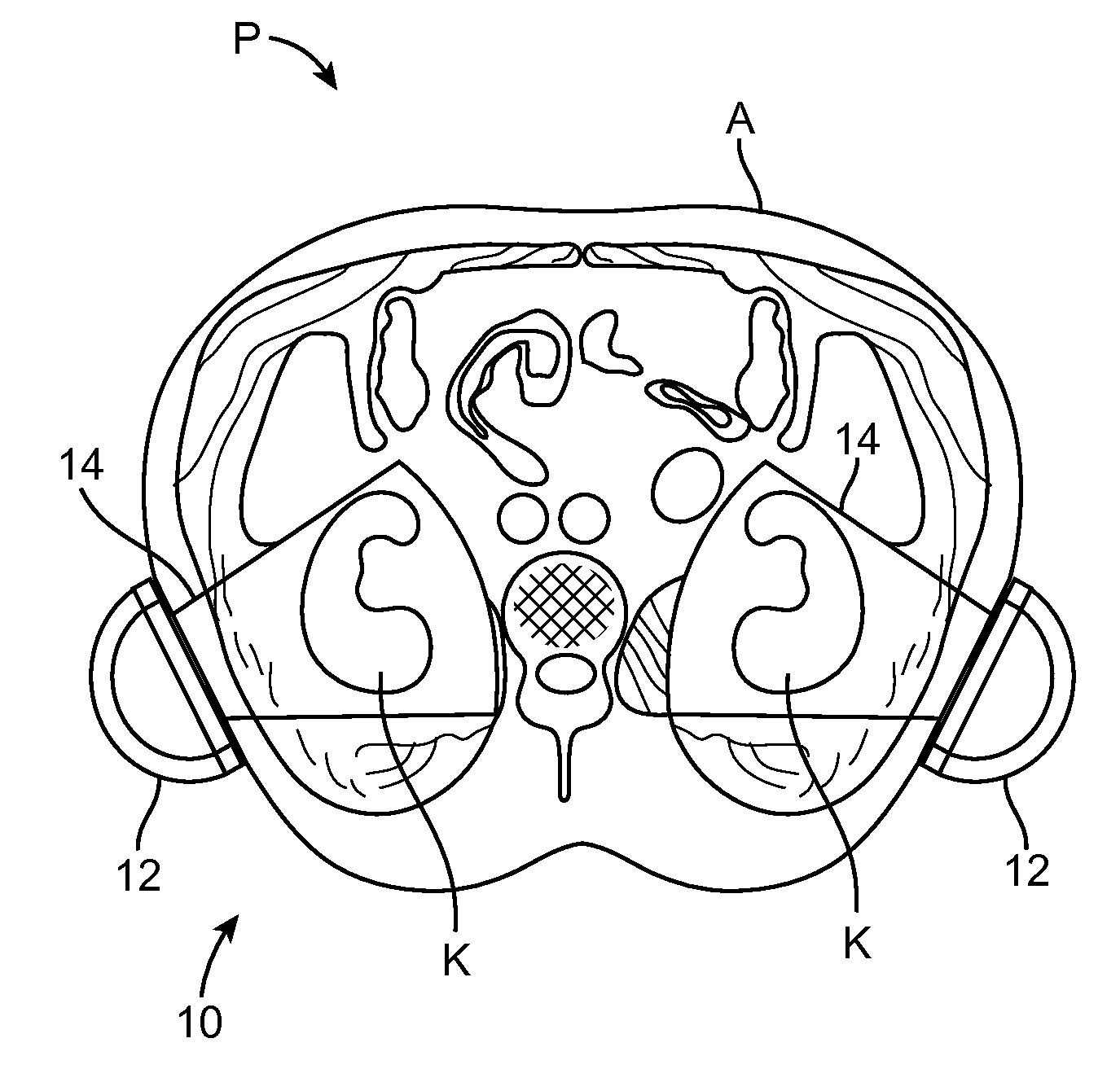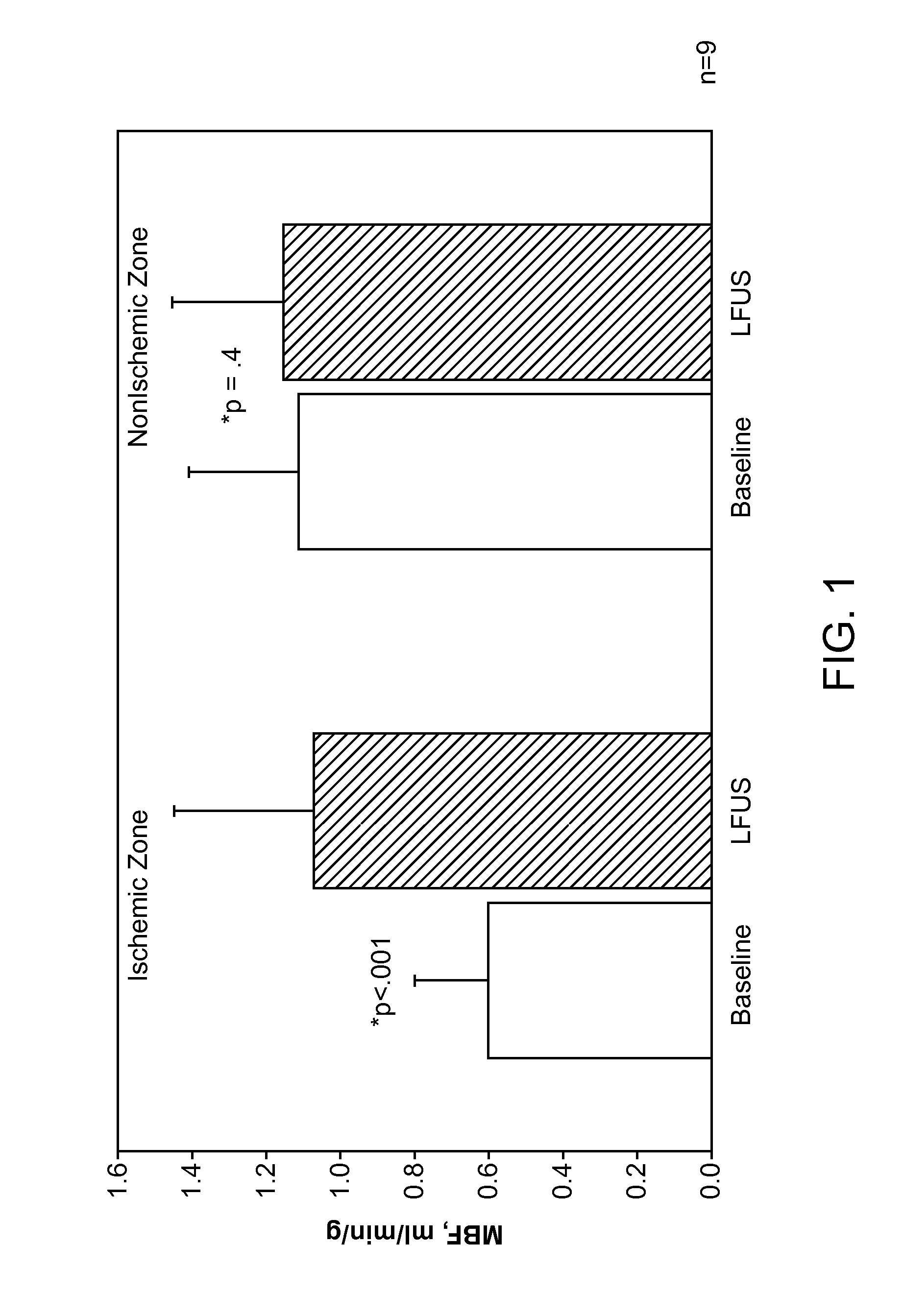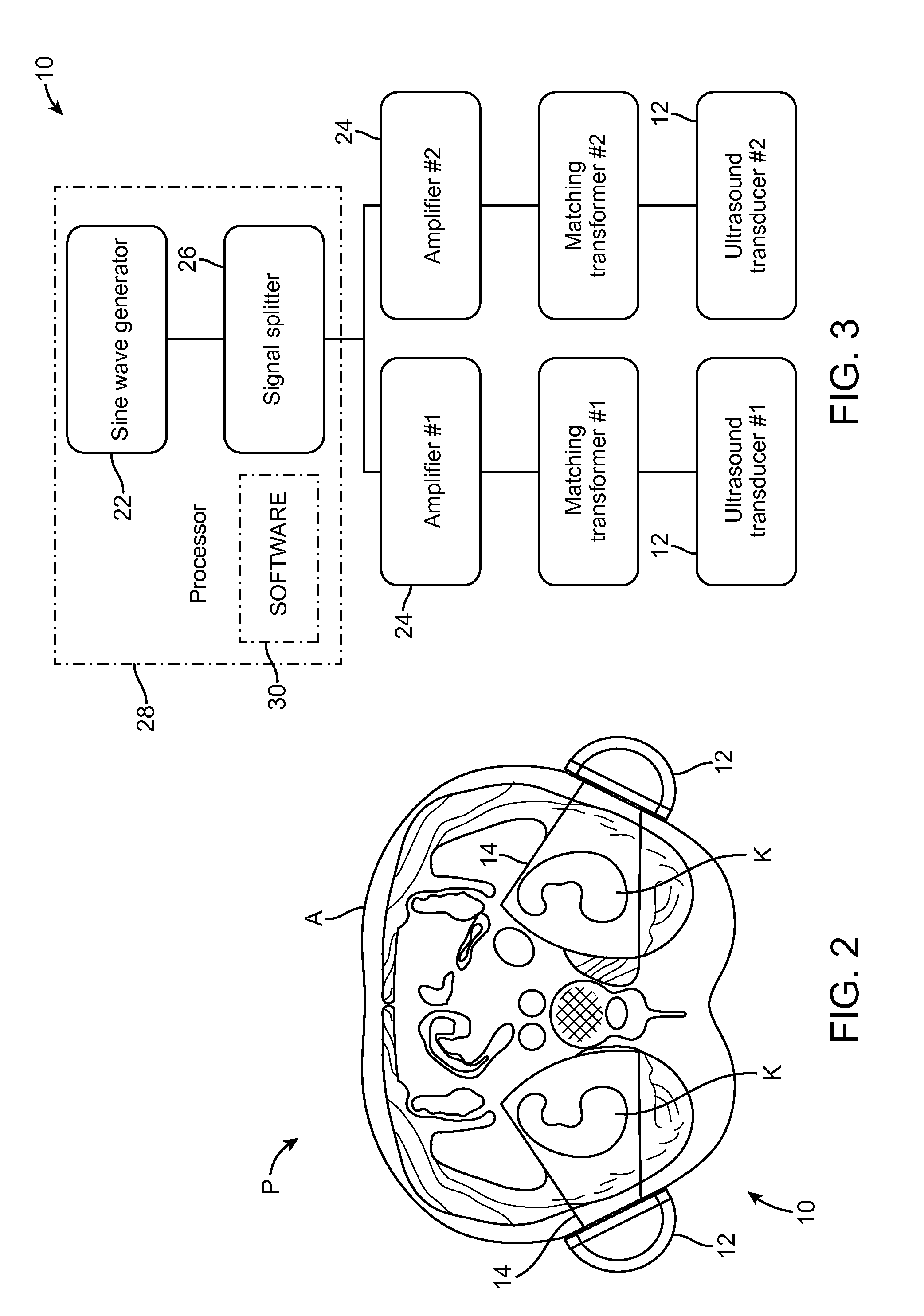Macro/Micro Duty Cycle Devices, Systems, and Methods Employing Low-Frequency Ultrasound or Other Cyclical Pressure Energies
a duty cycle device and micro-processor technology, applied in the field of medical devices, systems and methods, can solve the problems of acquired renal failure, kidney injury from additional sources, irreversible renal failure, etc., and achieve the effects of enhancing perfusion, avoiding kidney injury, and reducing the number of ablative energy levels
- Summary
- Abstract
- Description
- Claims
- Application Information
AI Technical Summary
Benefits of technology
Problems solved by technology
Method used
Image
Examples
Embodiment Construction
[0041]The present invention provides improved devices, systems, and methods for treatment kidneys and other tissues of the body. The structures and techniques provided often employ cyclical mechanical pressure energy, most often in the form of non-ablative low frequency ultrasound energy. The energy may be at energy levels that are sufficiently low that no therapeutically significant heating of the tissues are generated, but with the energy penetrating into target tissues at levels that are sufficient to induce shear stress. While embodiments of the invention may employ energy focusing structures, the exemplary embodiments do not rely on focusing of the therapeutic energy so that the energy density adjacent the transducer or other energy transmitting surface will often be at least as high as the energy at the target tissue. Nonetheless, the energy levels are sufficiently low as to be safe for intervening tissues between the target tissue and the transducer. Hence, while catheter-bas...
PUM
 Login to View More
Login to View More Abstract
Description
Claims
Application Information
 Login to View More
Login to View More - R&D
- Intellectual Property
- Life Sciences
- Materials
- Tech Scout
- Unparalleled Data Quality
- Higher Quality Content
- 60% Fewer Hallucinations
Browse by: Latest US Patents, China's latest patents, Technical Efficacy Thesaurus, Application Domain, Technology Topic, Popular Technical Reports.
© 2025 PatSnap. All rights reserved.Legal|Privacy policy|Modern Slavery Act Transparency Statement|Sitemap|About US| Contact US: help@patsnap.com



